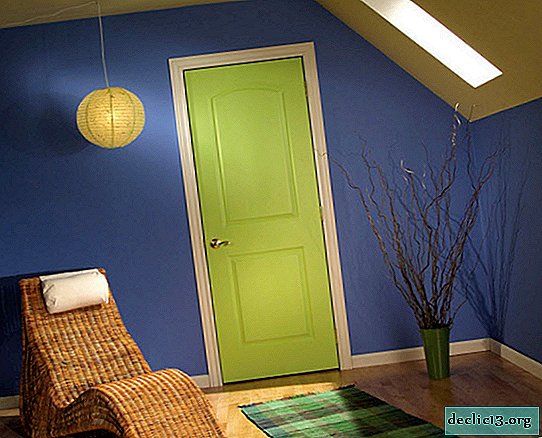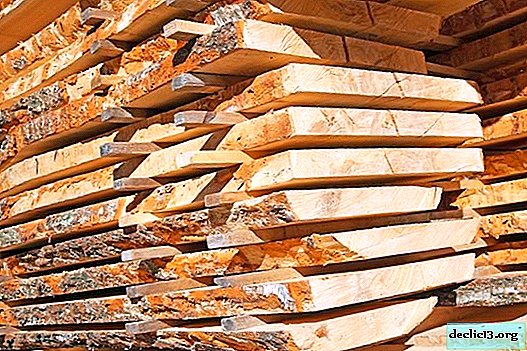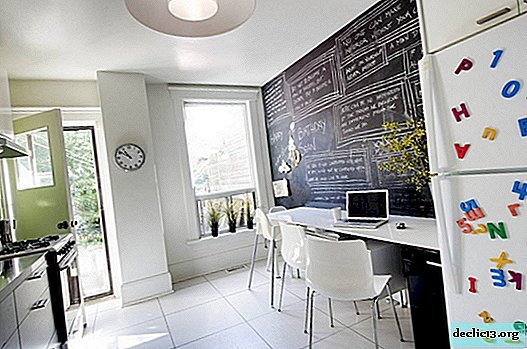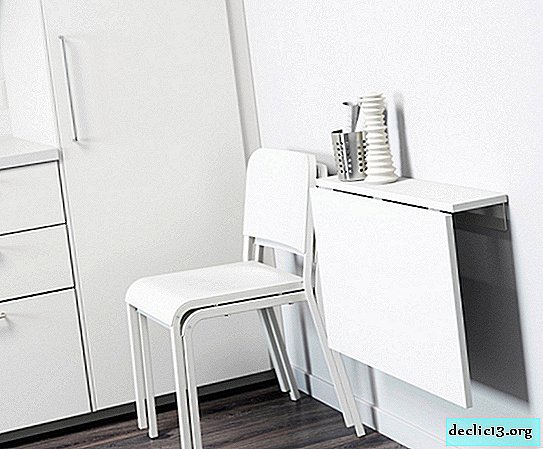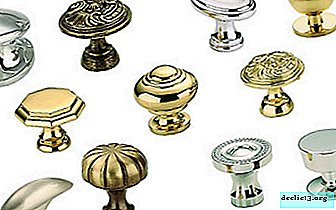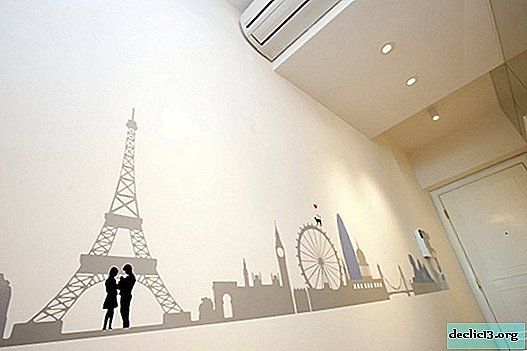Choose upholstered furniture for the living room
The living room is the main room in any home, it is here that the whole family gathers in the evening. In this, as a rule, the most spacious room in a house or apartment, guests are gathered and receptions are arranged. The interior of the living room should be ready for any test. And one of the most important roles in creating a cozy and comfortable atmosphere for all is played by upholstered furniture. Sofas and armchairs, pouffes and soft modules - not only create a soft zone of the living room, but often act as a focal point around which the whole concept of the living room environment is built. That is why all homeowners approach the choice of upholstered furniture with special care.
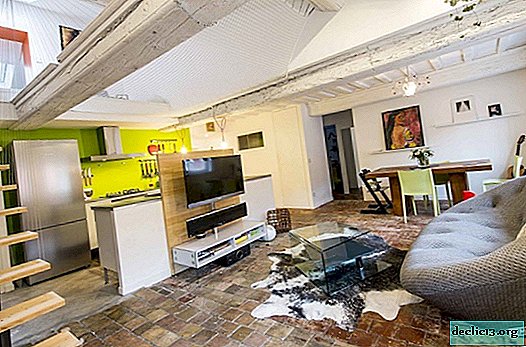

Currently, the assortment of upholstered furniture in stores is so high that it is time to get confused. From the abundance of options for models, textures, upholstery and decor, the head is spinning. But in addition to aesthetic characteristics, it is necessary to take into account strength, durability, and difficulty in maintenance and operation.


Arriving at the store, almost 100% of buyers primarily pay attention to the appearance of the furniture - the quality of the upholstery, colors and decor. Which is quite logical, because upholstered furniture should correspond to the chosen style in which the living room will be decorated or already decorated, it is important to consider the combinatorics of colors and textures. But in addition to external attributes, there are many pitfalls hidden from view, but of no less importance when choosing durable and reliable furniture that will last your family for many years and will delight you with its pristine appearance, no matter how much it is used.

Let's try to deal with a difficult question together - how to choose comfortable, practical and beautiful furniture for the living room and not ruin the family budget at the same time?


The choice of material and frame design
The frame of any piece of furniture is considered to be a structure designed in a certain way to bear the main load during the operation of the product. There are several types of furniture, depending on what material and how its frame is made:


The most economical, affordable and popular among our compatriots is furniture with a frame made of chipboard. Unfortunately, at an affordable cost the benefits of this type of material end. The strength of such furniture leaves much to be desired, environmental friendliness is at a low level - during operation, elements of adhesive substances involved in the production of particleboard and fiberboard are released into the atmosphere. It is desirable that when using such materials for individual parts of the furniture (back or pallet of the sofa, armchairs), its main parts (load-bearing elements) should still be made of solid wood of sufficiently dense and high-quality wood.


A better, more durable and presentable option is furniture, the frame of which was made of solid wood. Of course, the cost of such furniture will be significantly higher. It will depend on the type of wood used for the frame and the quality of the upholstery, decor.


An alternative to expensive solid wood furniture is a metal frame. Such pieces of furniture are reliable and durable, do not lose their properties during active use (this is especially important for furniture with sliding mechanisms).

Frameless furniture (or with a hidden frame) is not suitable for every interior, but it is very affordable in cost. These are bag chairs (they are also “pears”), poufs and sofas, which are filled with a special filling - a loose filler (usually in the form of balls made of polystyrene or polystyrene).

Armchairs or poufs with a similar filler usually sit over time and lose their elasticity, but this problem is easily solved - just fill up the filler (which is sold in any construction stores).

To frameless furniture include chairs and sofas from a single piece of polyurethane foam (PUF). Due to the properties of this material, it is possible to take any given shape when solidifying in a dense substance; it is possible to produce various furnishings. Typically, such furniture is covered with fabric, and outwardly it seems that the interior item does not have a frame, but it should be noted that chairs and sofas made of PUF should not be too soft, otherwise the structure will sit out very quickly, dents will remain.
Choose upholstery material
The quality, texture and color of the upholstery is not the last argument when choosing upholstered furniture (and for many homeowners, even the first).


Among the main upholstery materials, the following can now be distinguished:
- textile materials - tapestry, jacquard, flock, velor, chenille;
- genuine leather of various types of dressing and thickness;
- synthetic analogues of the skin;
- furniture fur.


Whatever information about the high quality of the upholstery material is provided by an advertisement or a consultant does not tell in a store, it is necessary to personally verify the veracity of this information. Try to check the quality of the material not only for density, but also to track how much the fabric is wrinkled and stretched after it is crouched or even snug.



If you plan to purchase upholstered furniture in light colors, then the issue of cleaning will become very acute during the first month of operation. In this case, flock is the best upholstery option for upholstered furniture - it does not lose its appearance, color and texture even after repeated cleanings. In contrast to flock, jacquard usually stands out - this fabric is not easy to care for, keep this in mind if you have small children or pets (or maybe both).


In addition to the quality, density and color of the fabric, it is important to consider its fading when exposed to direct sunlight. This property does not appear immediately, but it can spoil the impression of buying upholstered furniture that has lost its original coloring after several months of operation. Chenille fabrics have a high resistance to sunlight, preserving the initial appearance of the upholstery for a long time.

When choosing furniture with genuine leather upholstery, pay attention to the size of the pieces and the connecting seams. The fewer such joints, the stronger and more durable the upholstery material.

The cost of furniture with artificial leather upholstery is much cheaper and at the same time it may look so that only a specialist can determine the synthetic origins of the fabric. But it is important to remember that the artificial analogue of the skin has a very low breathability and is not as durable as natural material.


Determine the filler
A filler is any synthetic substance that provides softness for sitting or lying on a piece of furniture. The life of the piece of furniture directly depends on the type of filler. Among the main types of fillers, we distinguish the following:
- polyurethane foam (PUF) in the form of multilayer sandwiches or cast billets;
- latex;
- holofiber;
- polystyrene (usually in the form of balls);
- periotech;
- springs in combination with different types of filler.

As mentioned above, when using PPU filler, it is important to choose a dense material. Soft PPU will not last long.


In a store it’s difficult to check the quality of the springs (metal processing from which they are made, the quality of fastening of each individual spring), but no one will forbid you to ask for a furniture certificate from consultants.


The most durable and durable material for the filler (but unfortunately the most expensive) is currently considered natural latex. This is foamed and frozen juice of hevea or rubber tree. Such a filler is recommended for allergy sufferers because it is an absolutely hypoallergenic material.


Save space
Once you have decided on acceptable options for your frame, filler and upholstery, you can move on to the most interesting - the choice of models of sofas, armchairs, canapes and ottomans.

The most popular in the living rooms of our compatriots are corner sofas. Such models are not only roomy, but also able to save a considerable part of the usable space. Among other things, most of these models can be decomposed into a very capacious berth, which is very convenient in cases where guests stay overnight.

When choosing an angular model of a sofa that can transform into a bed, pay special attention to furniture. Not only the furniture service life, but also the ease of use will depend on the quality of manufacture and fastening of the sliding mechanisms.

Among other things, such sofas often have sufficiently spacious compartments for storing pastel linen, bedspreads and other home textiles.


Modular sofas are a little less popular. Their advantage is that using the permutation of the modules you can not only equip a convenient place for sleeping, but also diversify the room’s atmosphere with the help of simple and not tiring actions.
Soft island for the living room
I would like to distinguish islands for living rooms into a special group of upholstered furniture - this can be a large soft padded stool that is used for sitting or as a footrest, something like a coffee table, but with soft upholstery, on which you can also sit or fold magazines, books .





Alternative to the usual sofa in the living room
We bring to your attention several design projects of living rooms, the furniture of which does not involve a sofa (in the sense that most of us are used to). These are interesting and non-trivial interiors, in which despite the absence of the main participant in the upholstered furniture, a sufficiently comfortable place for sitting is provided.

The angular arrangement of soft pillows as the seats and backs of an impromptu sofa, located on a specially designed wide bench, allows not only to save a large amount of space and maintain the spaciousness of the room, but also to bring originality and creativity to the interior.

Ottoman instead of the usual sofa, perhaps not suitable for every interior. But for fans to read reclining in the living room, they will surely like it. In addition, such a piece of furniture retains the lightness of the atmosphere, does not load the interior of the room.




And in conclusion, a few practical tips that can help when choosing upholstered furniture, both for the living room and for any other room:
- acquiring soft aground, pay close attention to the connecting seams. Inspect the seams not only for the strength of the threads, but also for geometry - the seam should go along one line;
- sit down or even lie down on your favorite piece of upholstered furniture to evaluate not only the level of comfort, but also the consequences for the upholstery fabric after your actions;
- Before buying a folding sofa or chair, disassemble and assemble it several times. These actions are necessary not only to ensure that the mechanism is operational, but also to assess the level of comfort during operation (especially if the furniture is often planned to be moved apart and moved back);
- carefully inspect the furniture for completeness and the presence (absence) of external defects. Remember that when signing papers on the purchase of furniture (usually it says that when the buyer examined no external defects), you agree to the fact that the furniture is executed qualitatively and in case of possible further disputes you will not have the right to present arguments about the malfunction of the piece of furniture;
- taking furniture, open and inspect all parts for defects, cracks, delamination of the filler or upholstery, other malfunctions;
- when transporting furniture it is better to use the services of the seller, in which case the responsibility for the safety and integrity of the furniture will lie with the company. Remember that damage caused by the independent delivery of furniture cannot be repaired or exchanges are under warranty.








